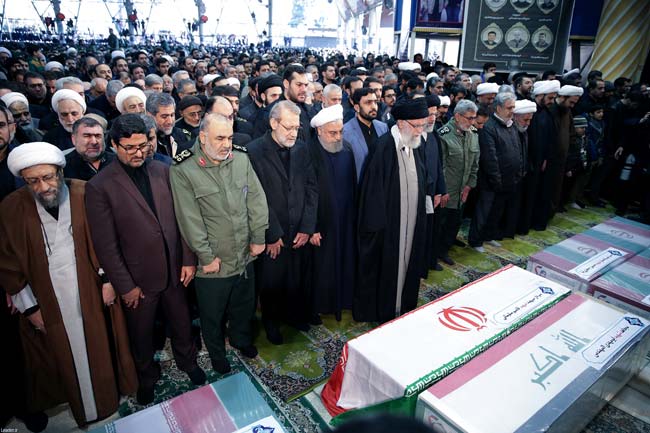Words of de-escalation call for actions: China Daily editorial
chinadaily.com.cn | Updated: 2020-01-09 20:31

In the wake of the United States airstrike that killed prominent Iranian general Qassem Soleimani, and Iran's pledge to take revenge, there were worries that what would ensue would be a spiral of escalation.
Indeed, had an angry Teheran chosen to retaliate disproportionately, the scenario would have been dramatically different.
What would have followed a retaliatory attack from Iran that claimed a conspicuous loss of US lives would almost inevitably have invited a new round of counterattacks, considering the US commander in chief's embarrassing, tricky position at home.
No matter how unwilling he might be to plunge his country into another unpopular, unprepared, costly, and unpredictable war in the Middle East, he would have had to respond toughly regardless.
Fortunately, things have not gone down that dangerous path.
Iran did avenge Soleimani's death. In what supreme leader Ayatollah Ali Khamenei called a "slap on the face" for the US, dozens of missiles were fired at military bases hosting US troops.
But no casualties or major damage to assets have been reported. And, more importantly, just as the US president announced there was no intention to start a war, immediately after the attacks, Foreign Minister Mohammad Javad Zarif declared the strikes "concluded" Teheran's response to the killing of Soleimani.
Both countries' envoys to the United Nations defended their respective attack on the other as self-defense citing Article 51 of the UN Charter, and both appear to be standing down more or less, showing full awareness of the undesirability of an escalation.
The Iranian UN ambassador stated his country's "measured and proportionate military response ... does not seek escalation or war".
His US counterpart went one step further, saying the US stands "ready to engage without preconditions in serious negotiations with Iran".
Acknowledging the restraint on Teheran's part, the US president has even suggested the two countries could work together for a new nuclear deal and cooperate to deal with jihadists.
What he has proposed may be too bold and unrealistic at this point in time given the recent missile exchange.
But since both parties share the desire to prevent an escalation and find the current state of affairs undesirable, it should not be beyond the realms of possibility since both are in the mood for finding a way out of the deadlock.
For its own and its allies' long-term interests, Washington should honor its words and engage in discussions with Teheran to find political solutions to the host of pressing regional issues. Teheran would also benefit from greater flexibility in dealing with Washington.
While the two countries seem to be downplaying the tension, risks remain, and these will continue to be a fizzling fuse unless the two countries act on their words to avoid war.























